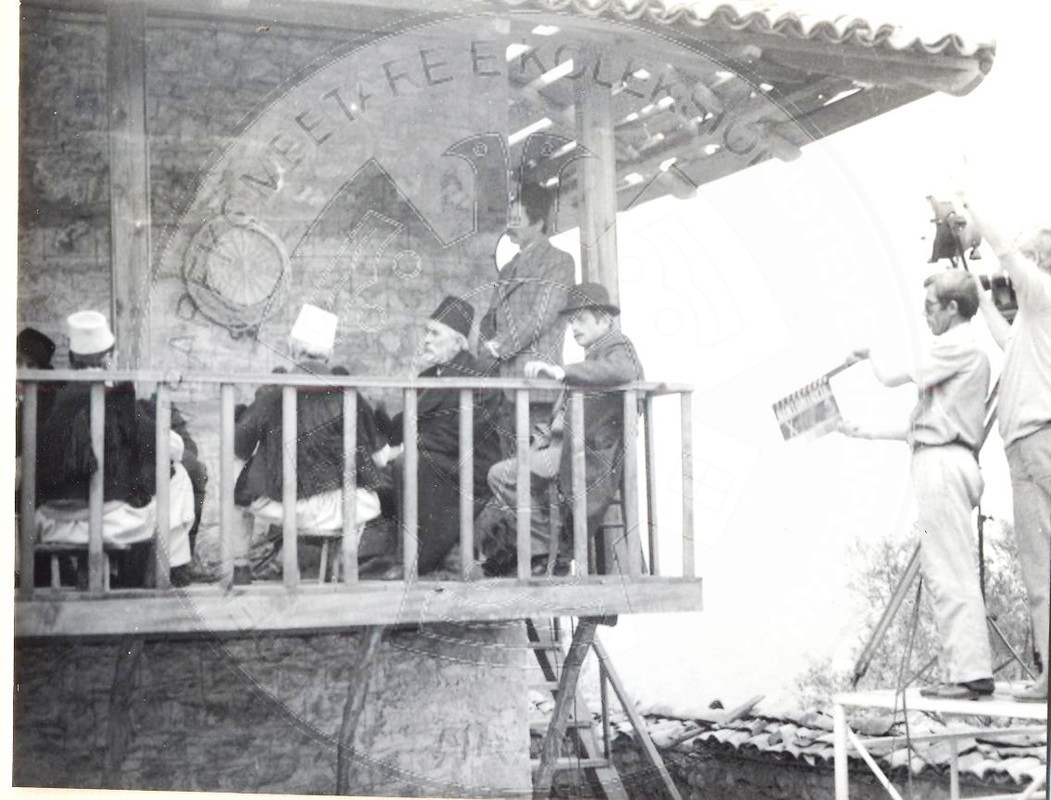The filmmaker Viktor Gjika will be remembered this week at the premises of the Ministry of Culture, in the building of former Kinostudio “New Albania”, where all the film heritage was produced, which served and witnessed the dictatorial regime. Gjika is remembered at a moment when the noise on the cinema created in dictatorship has almost faded away without revealing how to look at this wealth today.
The filmmaker Viktor Gjika will be remembered this week at the premises of the Ministry of Culture, in the building of former Kinostudio “New Albania”, where all the film heritage was produced, which served and witnessed the dictatorial regime. Gjika is remembered at a moment when the noise on the cinema created in dictatorship has almost faded away without revealing how to look at this wealth today. However, though sporadic creative profiles like Viktor Gjika are not that they have created a cacophony of thoughts. This filmmaker has been “guarded” or rejected, as a creator, individual, but it has not yet been discovered what he was forced to manipulate over his talent, especially when he started intensively creativity after returning the Moscow student to Albania for Subject to ideological machinery.
There is no doubt that even in this commemoration for the film will not “discolor” any deformed truth, except for fact, how will it always behave another case with arguments of its rank: realism or proletariat ?! Born on 23 June 1937 in Korça and died on March 3, 2009, Gjika conducted high studies at the Cinematographic Institute “VGIK” in Moscow for filmmaker. The weight of the director of Gjika is kept by these films: “Horizonte e hapur”, “The Eighth in Bronze”, “The Night of the Nights”, “White Roads”, “Resistance”, “Gramophone Genre”, “Second Nine , “The Man of the Ball,” “The Commander of the Light,” “Facing,” “In Every Season,” “The Hot Autumn of ’41,” People in the Stream, “I Am Ismail Qemali, Whenever the Ravens flee (Kosovo) “,” Language that does not die “,” Albanian art for centuries “,” Enver Hoxha greetings “,” Rron lives does not die Fan Noli ” Throughout his career he made about 15 feature films and 25 documentaries. In 1977 he was awarded the title “Deserved Artist” and in 1985 “Artist of the People”. Thoughts shared about the filmmaking are mostly nostalgic, and appreciative of his creative individuality, and intuition to discover. In these contexts, one of them writer Teodor Laço wrote: “Sometimes, who chooses the name at birth, anticipates the future as well. He was baptized by Victor, which means Victor. I know about 60 years, so I have reason to admit this. In gymnasium was always the first. In each subject. But not as a monk of books. Singing as a soloist, he played in theater plays. I was ubiquitous. Kanakar of girls. With a golden diploma at the high school of cinematography. In the history of Albania’s artistic and documentary film, he wrote a chapter that will not be forgotten. Because it is engraved on a stone, with a sculptor. If we were to look for a distinctive feature of all of his films, for me this would be realism … “. “Whenever the name of the master Viktor Gjika appears in the film as a director, the spectator must be ready to observe a poetry of colors, sounds and images that completely separate his work from other directors. Korca’s warmth under the snow during the “Confrontation” (1976), the mandolin, the bourgeoisie, the alleys, the cafes, the bazaar even though the rural reality is somewhat obscured by the general civic panorama or the sounds of the glamorous clarinet of Bujar Lakos which forbid the weeping of the child In the pain of losing grandfather in protest against the monarchy of “General Gramafoni” (1978). The possibility of an essentially Albanian love between Bardhyl and Zana as well as the landscape of “Every season” student life (1980) or the patriotic feelings that take on every time we see the figures of Ismail Qemali, Isa Boletin and Luigj Gurakuqit of “Second Nine “(1982), are some of his works that have left a deep mark on our collective memory. And precisely, the emotional element is the one that more than anything else constitutes the common denominator of these films. In a way, we can say that the art of Gjika especially possesses the power of feelings on the spectator, the love or the revolt, the emotional manipulation as a tool of totalitarian ideology. But this manipulation – everywhere and whenever in the cinema as a plant of magic – in a substantial part of it is undermined by the all-instrumental meaning of vulgar political manipulation, from what is called politicization of art, “wrote Julian Bejko (in the book “The Society of Cinema”, I, The Old Regime and the War of the People, Edlora, Tirana, 2012, p.106). While there is also a personal testimony of the director in an interview in a case of a selection of Gjika films by CCTV, Chinese television, the Albanian filmmaker talked about starting as an independent filmmaker, he said, “The first film I made as a director Independent was an “open Horizons” that relied on a real-life event in a lifelong character during a storm to protect the bigger, a loading and unloading crane in the seaport. At my request, Dritero Agolli wrote the script. In that movie I was also a director, and an operator? ” Open horizons are based on a real story, a hero of the day. If the movie “Open Horizons” is still seen today, it is clear that the culprit for the death of the hero is the bureaucrat that did not come in the right time and did not give the right help. The film has interesting scenes and was well received. ”
Get it from mapo.al

